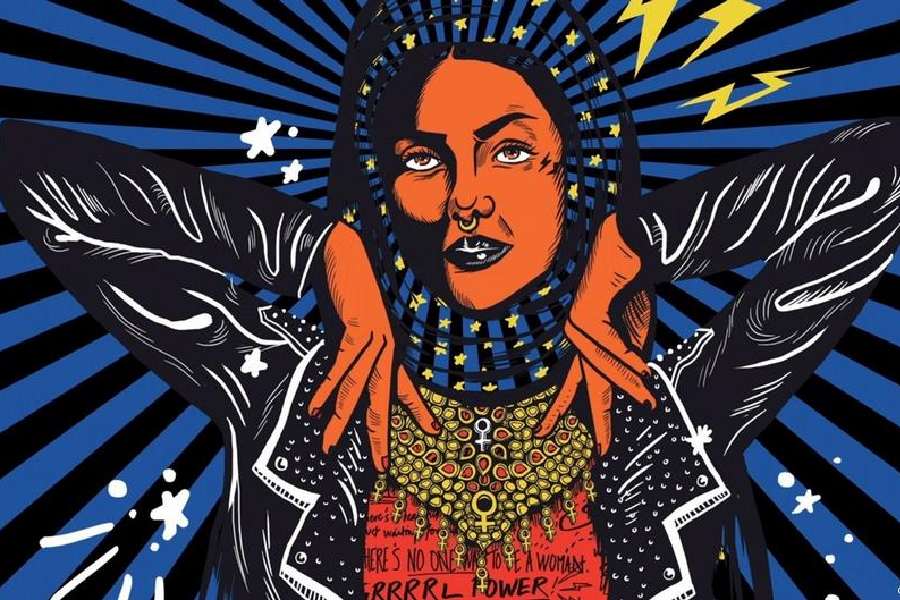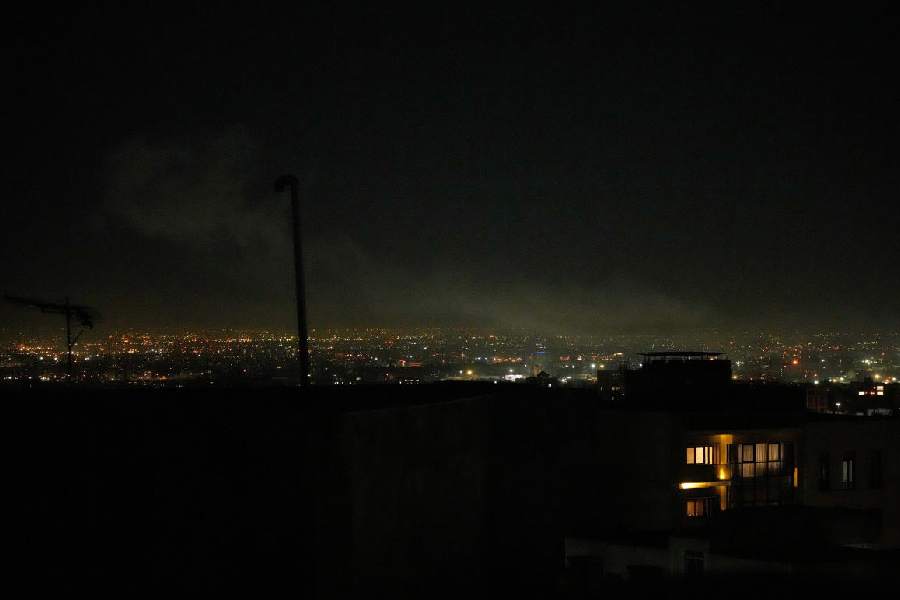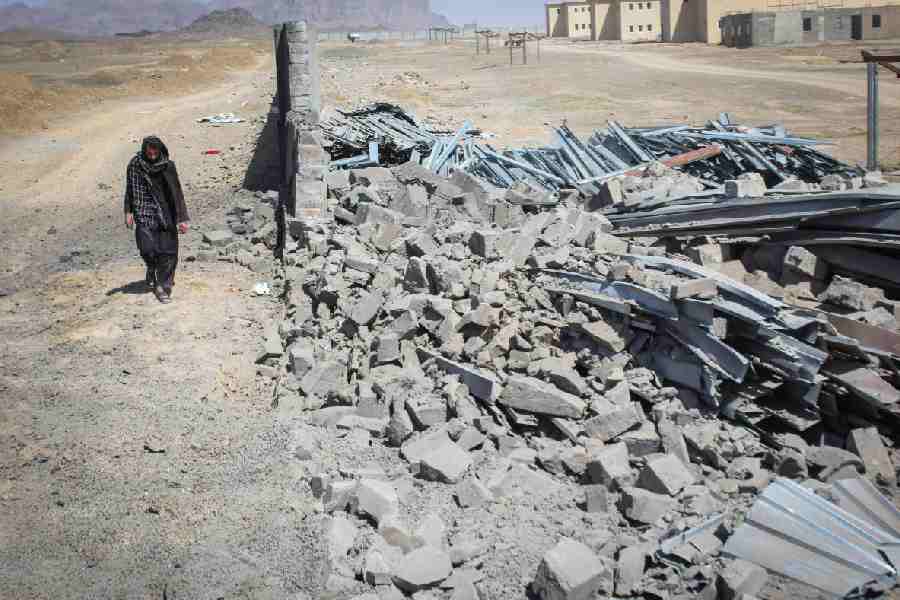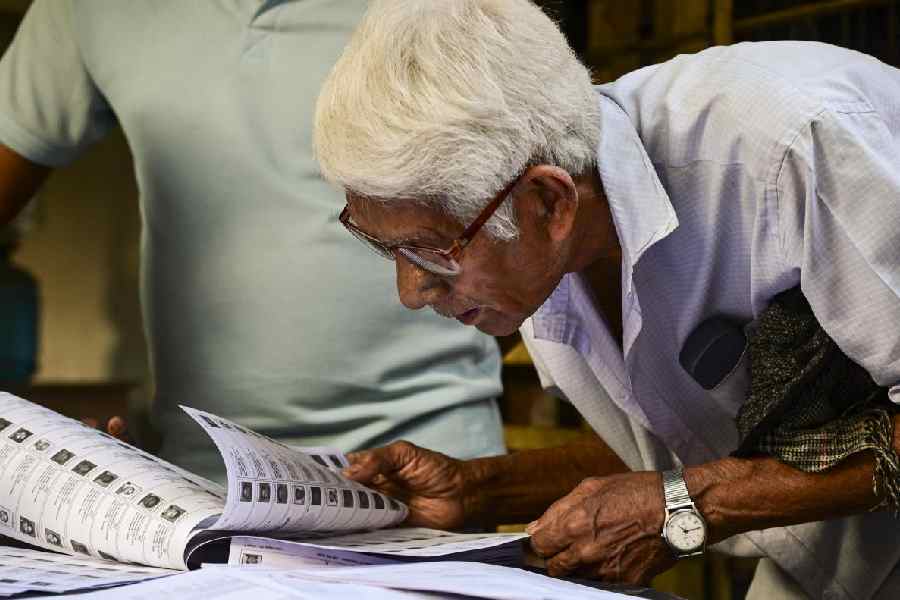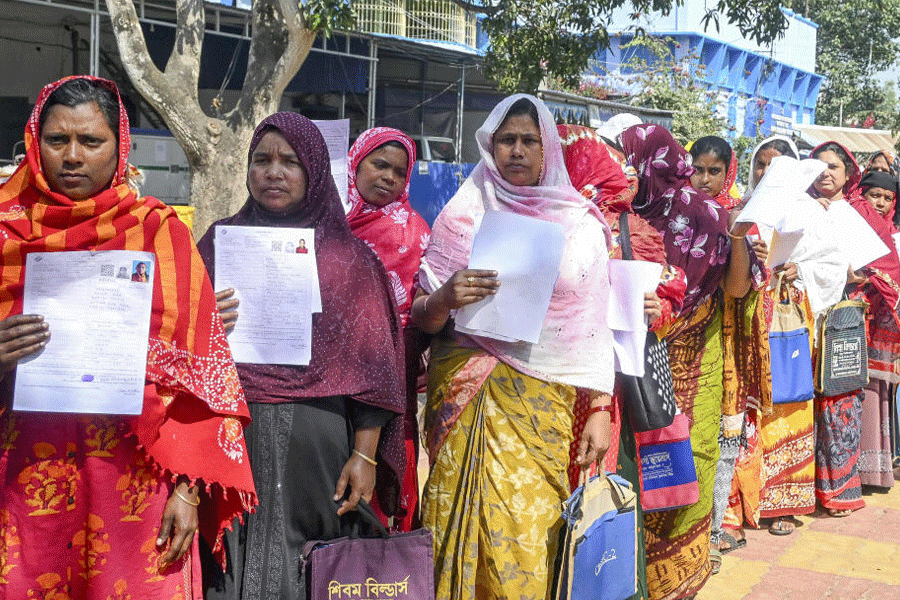The Pakistan Art Forum supports emerging artists dealing with feminist or LGBTQ themes, allowing unconventional voices to emerge.
Historically, art in Pakistan has found unique ways to comment on social issues and push boundaries. However, much like in other countries, the art market is heavily curated, and often the domain of the country's privileged elite is skewed toward certain themes, styles, aesthetics, and formal training.
The Pakistan Art Forum (PAF), established in 2014, aims to circumvent the traditional gatekeepers of art in the country.
It first used social media and digital platforms to feature more eclectic and inclusive artists and styles. After the pandemic, the forum also set up a physical address that serves as a safe space for artists, allowing them to push boundaries and start a dialogue about queer and LGBTQ identity politics, sexuality and power, all while challenging patriarchy — themes that are taboo in Pakistan.
"Throughout the ages, art has been a medium of reform, resistance, used to highlight various social dilemmas," Imtisal Zafar, founder of PAF, tells DW. "It is important for us to not only curate shows that are aesthetically appealing, but also to use art as a medium to shed light on various issues."
Human rights violations and atrocities against women in Pakistan have gained more visibility through social media and reports, and the situation is being increasingly denounced by artists challenging the country's patriarchal social system. Many of them have adopted a decidedly feminist stance.
Most notably, Shehzil Malik has gained international renown for her depictions of powerful Pakistani women and femininity. Her works deal with the everyday and structural misogyny faced by women.
While Malik's portrayals of feminine strength are almost otherworldly, fantastical and supernatural, Zainab Aziz is a young emerging artist showing feminine strength in another creative way by focusing on the mundane.
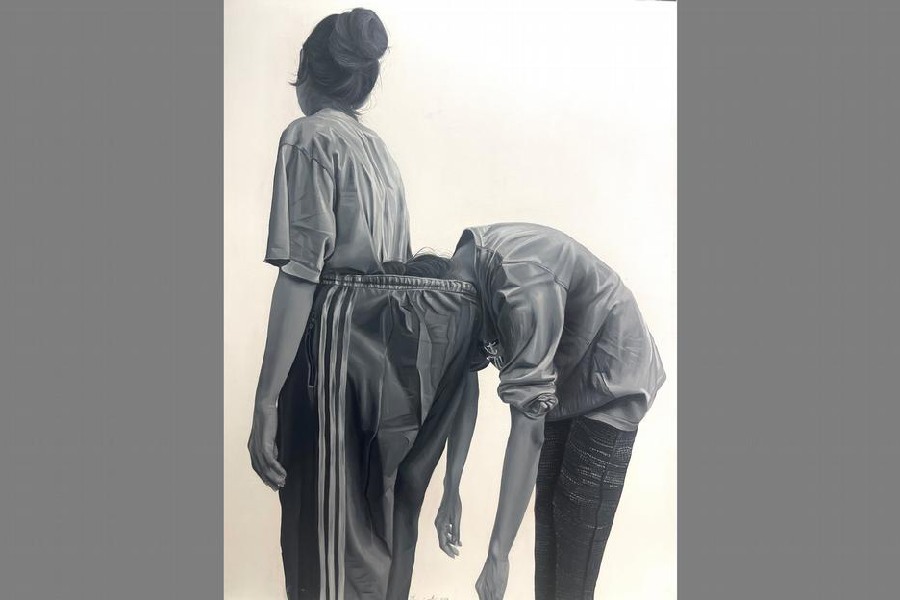
Zainab Aziz humorfully comments on how women are being controlled by a patriarchal society Zainab Aziz
Aziz works primarily with oil paints and has a signature style featuring a monochromatic palette and large voids in her representations. Through black-and-white contrasts, she aims to highlight social hypocrisy.
"My work revolves around female protagonists, the way they share their secrets and bond. I consider the female body as a landscape of a society which bears multiple stories within it," says Aziz.
Three pieces from her second solo show, "Misty Tales of Women," document everyday, habitual moments of women's lives, depicting how they are expected to trust their surroundings and what society demands of them blindly.
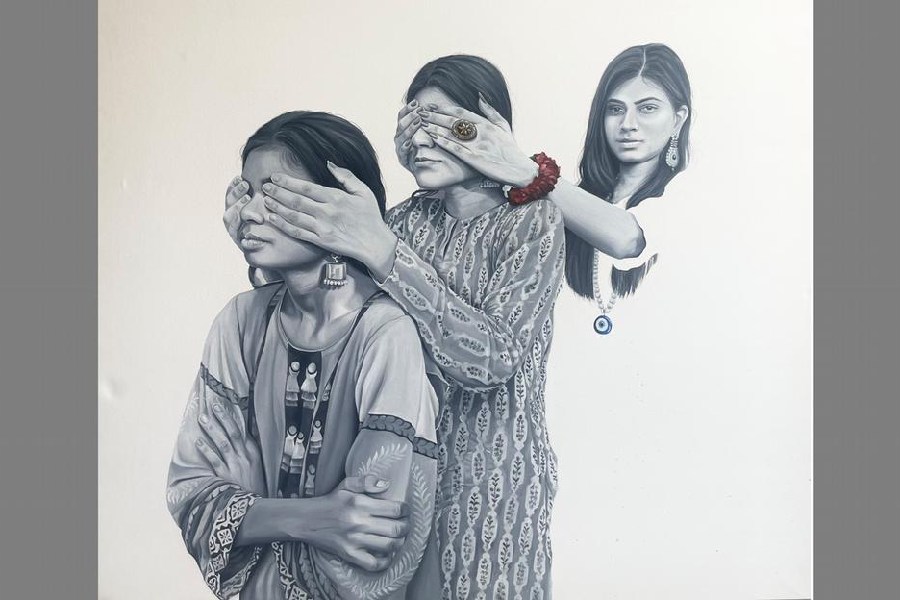
This work by Aziz depicts intergenerational trauma and how women are expect to conform to social norms Zainab Aziz
Aziz, who has received training from Pakistan's College of Art & Design and the National College of Arts, recognizes that the institutions have allowed her to polish her artistry. Still, she laments the lack of connections for young and emerging artists to break through.
"I have faced a lot of difficulties as a Pakistani artist, as we don't get the exposure we deserve, domestically or internationally. One has to struggle by themselves to make their name in the art world," says Aziz.
She points out that the Pakistan Art Forum is the only platform in the country that supports emerging and young talents. According to Aziz, PAF's unique proposition is that they help relatively new artists sell their work immediately by encouraging, supporting and guiding them to showcase their work in galleries and helping them get media exposure.
The founder of PAF, Imtisal Zafar, explains that his mission is to support artists with a diverse portfolio. He routinely visits university art shows of graduating students to discover new talent. He first met Aziz at her thesis show in 2017.
Same-sex sexual acts are banned by Pakistani law. Sodomy is a crime that can be punished with two years to a life sentence in prison.
Understandably, many LGBTQ people in the country lead double lives and engage in clandestine affairs, keeping their sexual identity a secret from their closest friends and family.
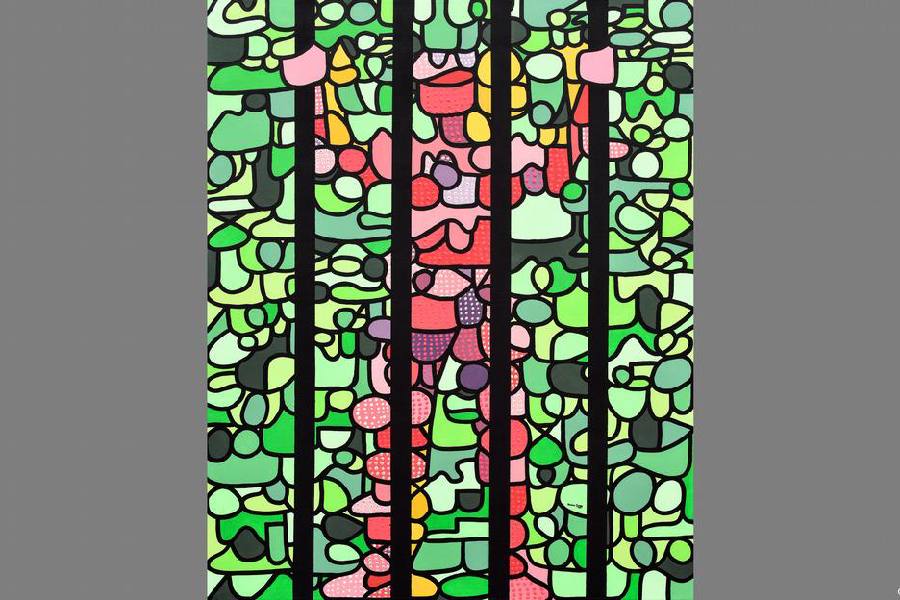
Ahmer Farooq comments here on how LGBTQ are imprisoned, whether literally or through cultural pressure to conform Ahmed Farooq
Ahmer Farooq boldly tackles LGBTQ issues in his art, shedding light on how gays are pressured into forced heterosexual marriages to uphold a façade of "normalcy."
He explains that a gallery refused to show his work under his concept, which described how the art deals with gay forced marriages. "I then changed the statement to edit out 'gay' and was allowed to show it. The same art, the same everything, but I had to realign my concept," Farooq tells DW.
He says that the press also often refuses to share his art and cover his shows, fearing backlash or legal consequences, as even openly discussing homosexuality can get one into trouble.
Farooq is grateful that PAF has never censored his art, showcasing his work without prejudice or modifying his concept.
The artist's unique style features vibrant colors to translate the hypocrisy of a sanctimonious society visually: "It all looks bright and cheerful on the surface, but it is much darker if you look closer," Farooq points out.
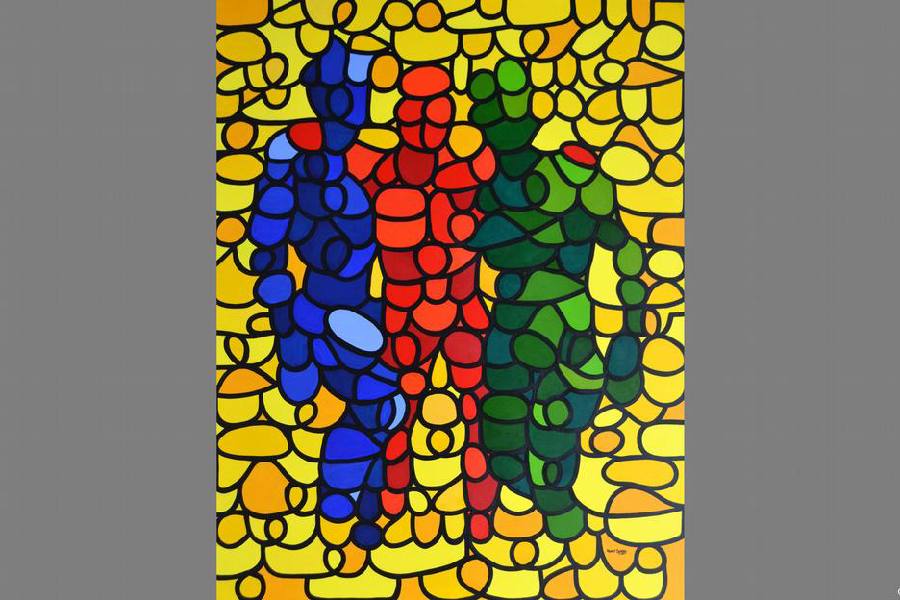
This piece refers to how gays have to keep their homosexual relationships secret, displaying a platonic friendship instead Ahmed Farooq
His recent show, "A Safe Space," has drawn considerable local and international interest, and Farooq will show his work in the US soon.
The artist feels safe spaces are essential to many people's survival, as marginalized people need a "bubble to be themselves."
While his show shines a light on the challenges faced by the queer community, Farooq states that his work also comments on how we are all bound together in our humanity and simply want the same things: security, love, peace and empathy.

